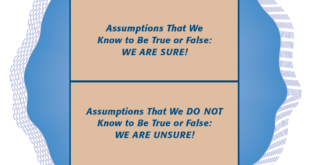.[embedded content]
Read More »Radikala räntehöjningar får inte vår ekonomi i balans
Radikala räntehöjningar får inte vår ekonomi i balans En gång i tiden var ledstjärnan för den ekonomiska politiken att mildra konjunktur-svängningarna och kapa de djupa dalarna och höga topparna. Nu vill Riksbanken skapa en ekonomisk nedgång för att få ner inflationen samtidigt som finanspolitiken passivt ser på. Penningpolitiken ser ut att kunna sänka den svenska ekonomin. Riksbanken balanserar kort sagt på en knivsegg. Konsensus grundar sig ofta på dogm....
Read More »Truth will prevail at last …
Truth will prevail at last … .[embedded content]
Read More »Postmodernism — self-refuting nonsense
Postmodernism — self-refuting nonsense .[embedded content]
Read More »Justice vs Power: The Chomsky-Foucault Debate
.[embedded content]
Read More »MMT — Krugman still does not get it!
MMT — Krugman still does not get it! Krugman complains that Lerner was too “cavalier” in his discussion of monetary policy since he called for the interest rate to be set at the level that produces “the most desirable level of investment” without saying exactly what that rate should be. It’s an odd critique, since Krugman himself subscribes to the idea that monetary policy should target an invisible “neutral rate,” a so-called r-star that exists when the...
Read More »Skicka Zlatanstatyn till Qatar!
Skicka Zlatanstatyn till Qatar! Även i form av en staty ställer fotbollspelaren Zlatan Ibrahimovic till problem för sin omgivning. Efter Zlatans senaste kärleksförklaring till diktaturen Qatar vågar nu inte ens Malmös ledande politiker ta i frågan om den nu tydligen reparerade statyn ska placeras på synbar plats eller inte. De avböjer till och med att kommentera det problem som uppstått sedan Zlatan ställt sig i spetsen som Qatar-regimens kanske allra...
Read More »Proud father (personal)
My son David Syll was elected today as a Swedish Bar Association member. I know your mother Kristina and grandpa Erik — if they had still been with us — would have been so immensely proud of you for keeping up the family tradition. Congratulations David!
Read More »Sadeness
.[embedded content]
Read More »Assumption uncertainty
An ongoing concern is that excessive focus on formal modeling and statistics can lead to neglect of practical issues and to overconfidence in formal results … Analysis interpretation depends on contextual judgments about how reality is to be mapped onto the model, and how the formal analysis results are to be mapped back into reality. But overconfidence in formal outputs is only to be expected when much labor has gone into deductive reasoning. First, there is a need to feel...
Read More » Lars P. Syll
Lars P. Syll




